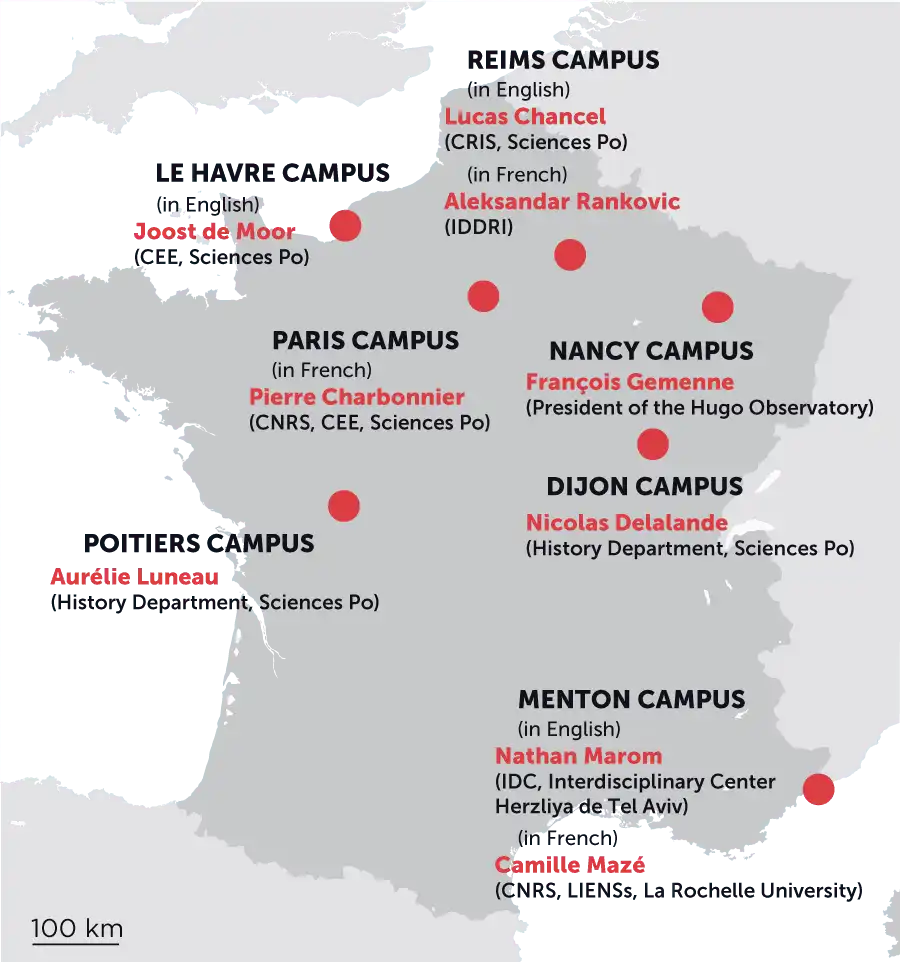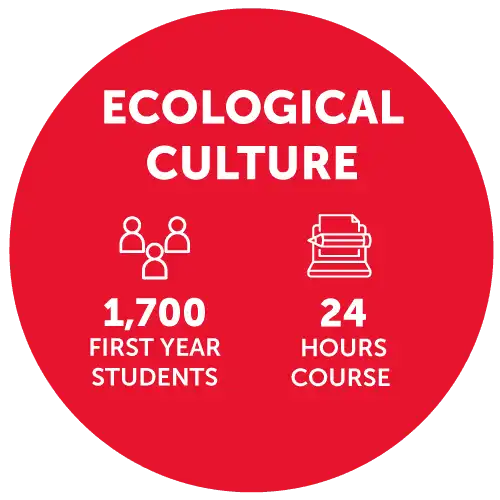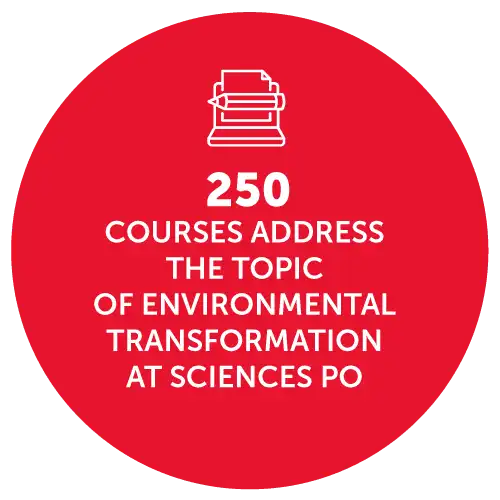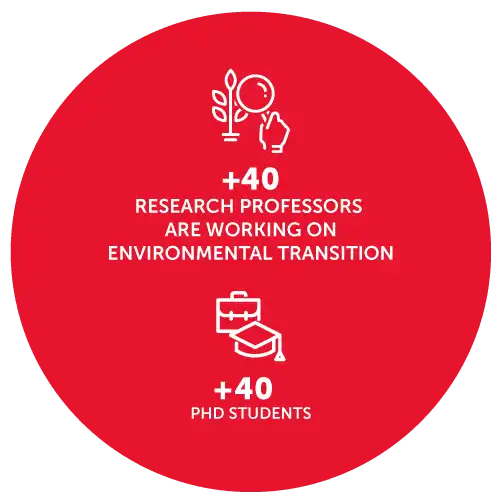Home>Sciences Po Is Launching a Compulsory Course on Ecological Culture

16.01.2023
Sciences Po Is Launching a Compulsory Course on Ecological Culture
Environmental transformation is a the very heart of Sciences Po's educational and research project. This belief is dear to all: students, teachers, researchers, staff and its President, Mathias Vicherat. The latter supported a unique initiative in France, a true symbol of the deep interest of the institution towards those issues: a compulsory course of 24 hours on “Ecological Culture” for all first year students around Sciences Po's 7 campuses.

For 150 years, Sciences Po followed its mission to educate enlightened citizens, independent managers, capable of thinking before acting to handle our modern world's challenges. Our students will craft the solutions to our world's problems and the environmental transition seems to be the main issue that our societies are facing. Since my arrival at Sciences Po, I've been wishing to set in place a compulsory course for all first year students, in order to give them some analytical tools to decode and understand environmental challenges. It is both an ethical and professional need, it won't be possible to be in a managing position tomorrow without having any knowledge about those topics. I wanted Sciences Po to be on the forefront of the environmental transition challenge, as it has always been throughout its history.
Mathias Vicherat, President of Sciences Po
An interdisciplinary course to help students face environmental issues
On Monday, 16 January 2023, the 1,700 first year student from the 7 Sciences Po's campuses (Dijon, Le Havre, Nancy, Menton, Paris, Poitiers, Reims) will attend a 24 hours compulsory course created by Pierre Charbonnier, philosopher and researcher for the CNRS at Sciences Po's Centre for European Studies and Comparative Politics.
The course will gain from Sciences Po's interdisciplinary curriculum by relying on political sciences, law, environmental history, economy, sociology…

There are two main steps to the course:
- 18 hours of intensive lectures on the week from 16 to 23 January 2023. It will take place in both English and French and will be taught by 9 professors (depending on the campus)
- 6 hours of complementary classes during the second semester, taught by specialists of life and natural sciences on specific topics that lead to public policy debates
The flagship initiative of an overall redesign of the academic curriculum
The launch of this great course on “Ecological Culture” is rooted in a deeper movement, ambitious and hopeful, to renew Sciences Po's academic curriculum, in sync with students beliefs as well as the compelling challenges of our contemporary world.
Almost 250 courses address the topic of environmental transformation. Methodological and specific educational courses also exist, as the “Climate change” production by the School of Journalism.

Impact is also a core value for the Masters programmes: the School of Management and Innovation became the School of Management and Impact and is now focusing on teaching its 1,200 students how to be a manager that takes into account social issues and the part companies can play in the environmental and digital transformation. Other schools are offering Masters that focus on this important topic such as the School of Public Affairs, the Paris School of International Affairs and the Urban School.
Moreover, some dual degrees are mixing social sciences and natural sciences, at the Bachelor (Bachelor of Arts and Sciences) and the Master levels.
Strengthening research by staffing the permanent faculty
As a world leading research university, Sciences Po has been working for many years on environmental topics. Nowadays, more than forty research professors are specialised in this area and more than forty PhD students have made it the focus of their thesis, one of the most worked on at the doctorate level. Thanks to the support of Bruno Latour, Emeritus University Professor that passed away last October, who inspired Sciences Po's take on environmental transformation and who gave a part of the amount of his Kyoto Award 2021, and to the support of private partners, 2 millions of euros have been raised to launch the Bruno Latour Fund in order to support research in environmental policies by hiring 10 post-doc researchers to focus on this topic for three years.

The launch of this fund, at the end of 2022, is part of the different strong initiatives that were founded by Sciences Po:
- the interdisciplinary workshop on environmental research (AIRE) to promote and broadcast research
- the Earth Politics Center that aims, with its partner Paris Cité University, to foster an interdisciplinary research community
- the European Chair for Sustainable Development and Climate Transition chaired by Marc Ringel since June 2022 to focus on sustainable development in regard to national, European and international policies
- the “Transforming Interdisciplinary Education and Research for Evolving Democracies” - TIERED project, with the partnership of the CNRS, Paris Cité University, INRIA, INED, INSERM, IFREMER, INALCO and IDDRI, that started on 2 January 2023 and which goal is to solve the environmental transformation's risks for democracies, thanks to the 16 millions euros of support from the ExcellenceS Programme. Sciences Po has created to that purpose the Sciences Po Initiative for Environmental Change
MORE INFORMATION: